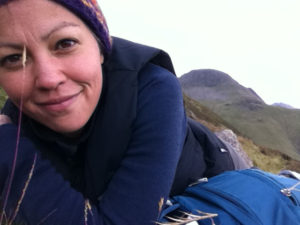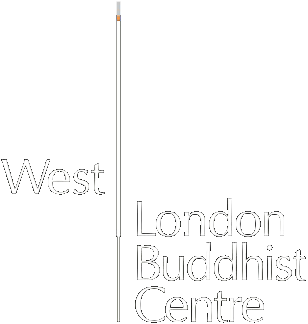Curiosity, compassion, connection: a taste of mindfulness
With a free mindfulness taster session coming up on Saturday 1 December 1-2pm, ahead of the eight week mindfulness courses starting in January, Sophie Crocker, WLBC’s Mindfulness Coordinator, launches into a spur-of-the-moment enquiry into the nature of mindfulness and uses it to reflect on how useful it can be to drop our agendas in favour of engaging in a more curious and open-ended dialogue with our own and others’ experience. Includes a guided meditation.
Curiosity: Playing Mind(fulness) Games
 As I sat behind the computer on the WLBC reception desk last week, fingers poised above the keyboard in a slight dozy fog after lunch, wondering how to start this blog, I suddenly had an idea. What if I asked the next ten people who came through the door what three words they associated with ‘mindfulness’ and just see what happened? Rather than asserting what I think mindfulness is, I could just be curious about what impressions people already have and go from there. Also, given how lazy I was feeling at the time, I was secretly hoping that the blog would just write itself! Well, at least the first 30 words of it. Here’s what they said:
As I sat behind the computer on the WLBC reception desk last week, fingers poised above the keyboard in a slight dozy fog after lunch, wondering how to start this blog, I suddenly had an idea. What if I asked the next ten people who came through the door what three words they associated with ‘mindfulness’ and just see what happened? Rather than asserting what I think mindfulness is, I could just be curious about what impressions people already have and go from there. Also, given how lazy I was feeling at the time, I was secretly hoping that the blog would just write itself! Well, at least the first 30 words of it. Here’s what they said:
breath, attention, pleasure
beauty, presence, allowing
attention, kindness, discipline
emptiness, fluidity, quietness
slow, soft, wide
present moment, non-judgemental, kindness
awareness of breathing, of body, noticing
centring, calm, focus
awareness, recollection, focus
present moment, being there, intimacy
What a beautiful and dynamic set of words. To be honest, I sometimes worry that ‘secular’ mindfulness, as it is known, can become a bit clinical, all in the head, and can lose its connection with the heart. But with words cropping up again and again like PRESENCE / ATTENTION / AWARENESS / KINDNESS / PLEASURE / NON-JUDGEMENT / FOCUS, I needn’t be worried. That’s mindfulness in a nutshell.
Compassion: Sitting with an Open Heart
Whilst mindfulness can be quite focused, either on the breath, on sounds, or on body sensations for example, it can also be approached in this more open-ended and inquisitive way. We might think we know what we are experiencing, whether it be stress, tiredness, pain or relaxation, but what does that actually feel like? What physical sensations accompany those labels? You can ask yourself questions like: What’s the emotional tone of my experience? Are there any thoughts that accompany these feelings? What’s my breathing like? How does this constellation of experience change as I watch it? In any given moment, we can drop our agenda and surrender to our direct felt experience with open hands and an open heart. We just need to get ever more curious about it and be prepared to hold whatever we find with tender non-judgemental awareness. To get a taste of this, you can try the Compassionate Acceptance practice, a free guided meditation from Breathworks.
Connection: Our Common Humanity
The paradox of mindfulness is that although it is an individual experience, its real beauty and healing potential is in connection, especially the recognition of our common humanity with each other. So, if curiosity unlocks and opens our awareness, and compassionate acceptance takes the edges off hardened habits of resistance and clinging to our experience of pleasure and pain, it is connection with our surroundings and others that saturates our being with a quality of kindness and empathy. Our compassionate acceptance of ourselves can be a touchstone for having compassion with the joy and suffering of others. Practising this can be as simple as bringing to mind a friend and enjoying their (imaginative) company, or reflecting on the commonality of your experience – both breathing, both feeling, both riding the ebb and flow of life as best you can. That we are not alone in our experience, whatever it may be, is the heart of mindfulness.
If you would like to have a little taste of mindfulness, we have a free introductory taster session on Saturday 1 December 1-2pm (register your interest via the website). Or if you want to dive right in, bookings are now open for Mindfulness for Health and Mindfulness for Stress courses starting in January 2019. Or if you have any questions about the Breathworks approach to mindfulness and the mindfulness courses and classes at WLBC, you’re welcome to drop me an email: mindfulness [at] westlondonbuddhistcentre [dot] com
Sophie Crocker
Mindfulness Coordinator
West London Buddhist Centre
020 7727 9382

